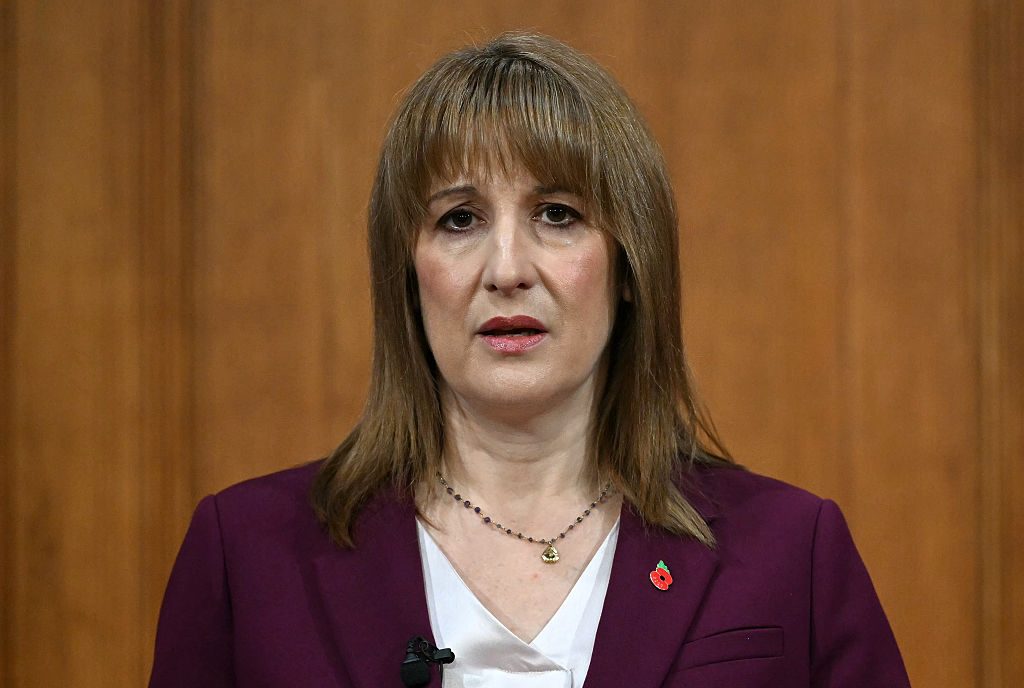In the bumper book of political revenge, Lucy Powell deserves her own chapter. Back in September, she was sacked from the Cabinet by Keir Starmer. It wouldn’t have been so humiliating if the other weakest links had also been removed — David Lammy, Ed Miliband, Bridget Phillipson, Lisa Nandy, Liz Kendall — but Powell was singled out.
And yet, not even two months later, she bounced back by winning the Labour deputy leadership contest. This is a party position and doesn’t come with a guaranteed Government job, but Powell has taken full advantage of her lack of ministerial responsibility. Her first move against Starmer was to mock his Chief of Staff, Morgan McSweeney. Then, much more seriously, came her Radio 5 Live interview earlier this week, in which she stressed the importance of standing by “the promises we were elected on”.
The timing — just after a speech from Rachel Reeves laying the ground for raising income tax — was exquisite. What’s more, there is nothing here that Powell can be disciplined for. Ostensibly, she’s just sticking up for the most significant pledge in Labour’s 2024 manifesto: “we will not increase National insurance, the basic, higher or additional rates of income tax, or VAT.”
What she’s actually done, however, is increase the price that Starmer will pay for breaking Labour’s promise. Don’t imagine that Reeves can be made the scapegoat here. Though she’s unlikely to survive as Chancellor for very long after the Budget, she’s already lost her authority and thus her capacity to carry the sins of the Government.
Over the summer, Starmer took control of economic policy through the so-called “Budget board” — a committee chaired by the Prime Minister’s economic adviser Minouche Shafik and the Treasury minister (and Starmer protégé) Torsten Bell. With McSweeney also involved, it’s obvious who’s in charge — and it’s not Reeves. This being Starmer’s doing, it’s all about the internal power politics. But there is a grand statement of principle that he could and should be making here.
The reality is that the golden geese which used to feather-bed our public finances, such as the North Sea and the City of London, are just about plucked. With Britain’s borrowing capacity also hitting hard limits, the only way of paying for the welfare state is by having a contributory state. This primarily means a broad tax base, instead of relying on a disproportionate contribution from the wealthiest individuals and companies. It also means that everyone who can work must work, with stricter limits on access to welfare in general.
Put differently, rights must be balanced by duties — taking out from the system while paying into it. And yet there’s nothing unsocialist about a contributory welfare state. As Maurice Glasman and the other Blue Labour thinkers have argued, it is entirely consistent with the working-class traditions of solidarity and cooperation.
In updated form, the contributory principle could give Starmer the overarching purpose he so desperately needs. And, in this respect if no other, the financial headroom does exist. Britain’s level of personal taxation is low by historical standards and lower than most of the country’s competitors; it could be increased.
The Right would object, of course, but Starmer’s real opposition comes from the Left, specifically from the fantasy socialism of open borders and open entitlements painlessly paid for by billionaires. Externally, the enemy is Zack Polanski’s surging Green Party. Internally, however, it is Lucy Powell who is now perfectly positioned to frustrate the Prime Minister’s best instincts.











Join the discussion
Join like minded readers that support our journalism by becoming a paid subscriber
To join the discussion in the comments, become a paid subscriber.
Join like minded readers that support our journalism, read unlimited articles and enjoy other subscriber-only benefits.
Subscribe